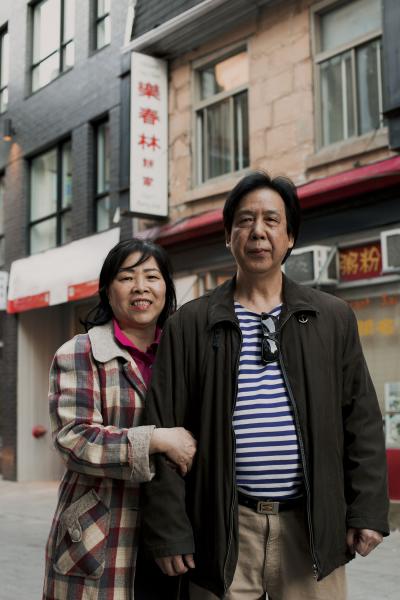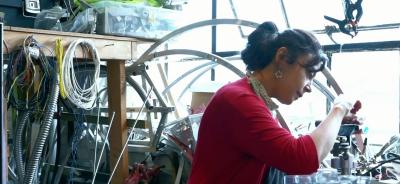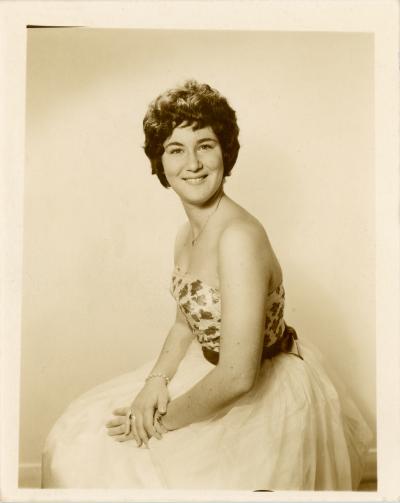As a “1.5 generation” immigrant, Shu De He grew up straddling two cultures.
As part of the exhibition Dialogue with Montréal’s Chinese Community, the MEM met with members of the Chinese community in Montréal. This is Shu De He’s story.
—
Shu De He enfant
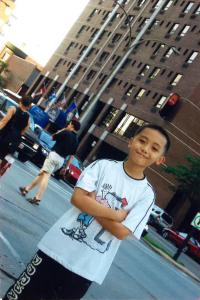
The term “1.5 generation” refers to immigrants who come to a new country in or before their early teens. These young people maintain certain characteristics of their country of origin, but also integrate rapidly into their host community. Like many of his 1.5 generation peers, Shu De has a unique bicultural perspective—one he considers an asset and a source of personal growth.
Growing up in Chinatown
Born in 1996, Shu De spent his early childhood in the southern Chinese province of Guangdong. In 2005, when he was nine, his parents moved the family to Montréal to offer him a better future. “My family lived in Chinatown for the first five years. Our apartment on rue De La Gauchetière was small, but the rent was cheap,” says Shu De. The climate—especially his first experience of snow—made a big impression on him. Soon after they arrived, his father took a job at a restaurant in Chinatown and his mother found work sewing. Like many Chinese immigrants, they were held back by the language barrier, which excluded them from better employment opportunities. Speaking neither French nor English, Shu De’s parents were limited to unskilled, low-paid jobs.
Straddling two cultures
Shu De He
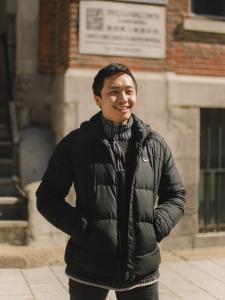
Shu De attended local public schools. He considers himself lucky to have had the opportunity to integrate more easily than his parents did. “The other students accepted me and played with me. I had very supportive teachers and I learned French quickly,” says Shu De, describing his classe d’accueil, a welcome class for school-age newcomers in Québec. In his first few years in Montréal, he thought of himself as more Canadian than Chinese. It was only as a teenager and after the birth of his two sisters that he began to more deliberately navigate between the two cultures and question his identity. “My sisters are completely Canadian, but I try to get them interested in Chinese culture, the music, and learning the language,” says Shu De. “I think it’s important to be able to speak Chinese.”
Reconnecting with his roots
Shu De He 2
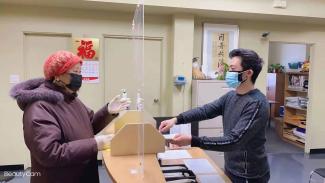
Today, in 2021, Shu De is studying criminology at Université de Montréal, while still volunteering at the centre. He recognizes the tremendous value of the languages and skills he has acquired through his bicultural upbringing—assets he puts to use in the service of others. And to this day, navigating between two cultures continues to shape his identity.
满城华人服务中心
「借着做义工服务长者,我既能贡献社区,又加深了对中国传统文化的了解。」
—
「因为我想回馈社区并分享我的知识 ,我从2019年开始做义工服务长者。当中有一小部分原因是希望借此进一步加深对中国传统文化的了解。我帮助老人们翻译和填写表格。在他们前往医院看诊时,我也陪着他们。我的工作内容一直在变,我也非常感谢每次和他们的交流,因为这些长者也传授了我很多人生经验。 」- 何树德
—
La traduction en chinois simplifié a été faite par Serena Xiong (熊吟) et révisé par Philippe Liu (刘秦宁).
滿城華人服務中心
「藉著做義工服務長者,我既能貢獻社區,又能加深與自己的根之聯繫。」
—
「因為我想回饋社區並分享我的知識 ,我從2019年開始當義工服務長者。當中有一小部分原因是希望加深我與自己的根之聯繫。我幫助老人們翻譯和填寫表格。在他們前往醫療預約時,我也陪著他們。我的工作一直在變,我也非常感謝每次和他們的交流,因為這些長者給了我很多人生教訓。 」- 何樹德
—
Traductrice : Wai Yin Kwok.

